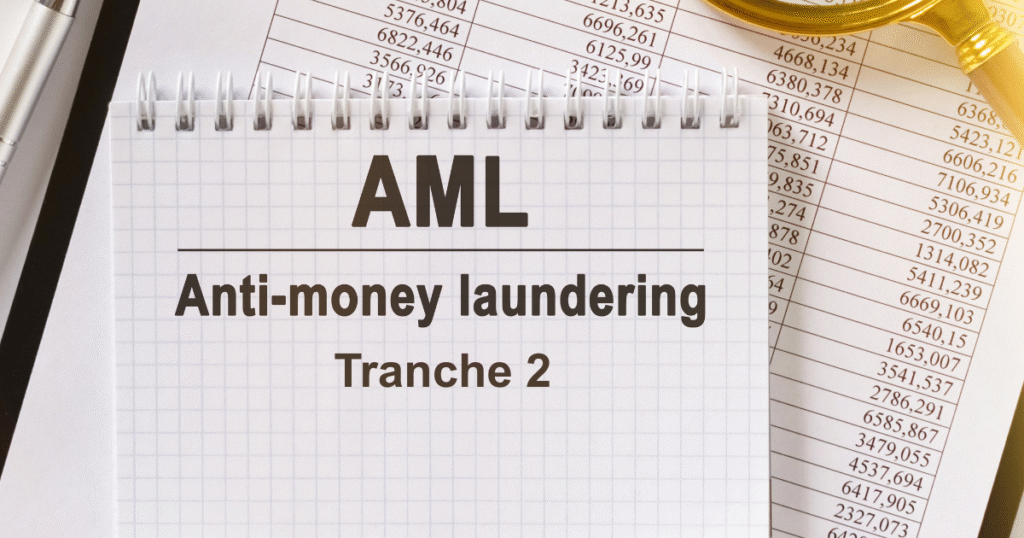Introduction
With the expansion of Australia’s anti-money laundering and counter-terrorism financing (AML/CTF laws) regime, law firms are confronting a new era of stringent regulatory oversight. Under the “Tranche 2” reforms to the Anti-Money Laundering and Counter-Terrorism Financing Act 2006 (Cth), legal professionals providing certain designated services are now considered reporting entities, placing them under the direct scrutiny of the Australian Transaction Reports and Analysis Centre (AUSTRAC).
Failure to comply with these new obligations exposes firms and individual solicitors to the risk of massive civil penalties, potential enforcement action, and significant reputational damage. This guide provides essential information on the scope of these new responsibilities, details the financial penalties for a breach, and outlines the key internal controls necessary to mitigate risk and ensure compliance.
Financial Penalties for AML/CTF Law Breaches
Maximum Civil Penalties Under the AML/CTF Act
Under the Anti-Money Laundering and Counter-Terrorism Financing Act 2006 (Cth), AUSTRAC can seek civil penalty orders from the Federal Court for non-compliance. These financial penalties are calculated using a system of penalty units indexed over time.
A single breach of a civil penalty provision can expose a law firm to substantial fines. The maximum civil penalties are:
| Entity Type | Maximum Civil Penalty (per contravention) |
|---|---|
| Body Corporate | 100,000 penalty units ($31.3 million) |
| Individual | 20,000 penalty units ($6.26 million) |
It is crucial to understand that these penalties apply “per breach.” A systemic failure in a firm’s compliance program, such as inadequate customer due diligence procedures applied across many clients, could be treated as thousands of separate contraventions.
Criminal Penalties for Money Laundering Offences
Separate from the civil penalties for regulatory non-compliance, legal professionals also face severe criminal sanctions for the distinct offence of money laundering. These charges are prosecuted under the Criminal Code Act 1995 (Cth) and relate to dealing with money or property that is, or is at risk of becoming, the proceeds of crime.
The severity of criminal penalties depends on several factors:
- The value of the funds involved
- The offender’s state of mind (whether they acted with knowledge, recklessness, or negligence)
An individual can face life imprisonment for the most serious offences, such as intentionally dealing with criminal proceeds worth $10 million or more. Corporations can also be charged with potential fines that reach millions of dollars.
Infringement Notices & Other AUSTRAC Fines
In addition to pursuing major civil penalty orders through the courts, AUSTRAC can issue infringement notices for specific, lower-level breaches of the Anti-Money Laundering and Counter-Terrorism Financing Act 2006 (Cth). These on-the-spot fines address issues such as failures in:
- Record-keeping
- Reporting
- Customer due diligence procedures
For example, AUSTRAC has previously issued fines of up to $16,500 to companies for failing to lodge their annual compliance report on time.
Furthermore, a failure to enrol with AUSTRAC after beginning to provide a designated service can result in daily penalties. For a law firm operating as a body corporate, this can be up to 60 penalty units for each day of non-compliance, which currently amounts to $18,780 per day.
Other enforcement actions, such as enforceable undertakings and remedial directions, can also carry significant financial costs associated with implementing mandated changes and can be made public, adding to the potential for reputational damage.
Get Your Free Initial Consultation
Request a Free Consultation with one of our experienced AML Lawyers today.
AUSTRAC Enforcement Actions & Consequences
AUSTRAC’s Non-Financial Enforcement Powers
In addition to seeking civil penalties, AUSTRAC possesses various other enforcement powers to ensure law firms comply with their AML/CTF obligations. These non-financial actions are designed to compel compliance and rectify breaches without necessarily going to court.
AUSTRAC can take several specific enforcement actions to address non-compliance, many of which are public and can impact a firm’s reputation. These powers include:
| Enforcement Power | Description |
|---|---|
| Enforceable Undertakings | A firm provides a written commitment to the AUSTRAC CEO to take specific actions to improve compliance. Breaching this can lead to Federal Court enforcement. |
| Remedial Directions | AUSTRAC issues a formal written instruction directing a firm to take specific actions to comply with the law, often to prevent repeat breaches. |
| Written Notices | The regulator can require a firm to appoint an external auditor for a review or to conduct a new or updated ML/TF risk assessment. |
| Registration Actions | For certain providers (e.g., remittance, digital currency exchange), AUSTRAC can refuse, suspend, or cancel registration if they pose an unacceptable risk. |
Reputational Damage & Professional Discipline
The consequences of an anti-money laundering breach extend far beyond direct financial penalties and regulatory actions. The resulting reputational damage can be a severe and long-lasting penalty for law firms, eroding the client trust that is fundamental to legal practice.
AUSTRAC typically publicises its enforcement actions, including details of enforceable undertakings, remedial directions, and infringement notices. This public disclosure means that even a relatively minor compliance failure can become public knowledge, damaging a firm’s standing in the legal community and deterring potential clients.
Furthermore, publicly identifying with money laundering violations can trigger professional disciplinary measures from the relevant law society.
Another significant consequence is the potential for confiscating funds under the Proceeds of Crime Act 2002 (Cth). This legislation allows authorities to seize money or property deemed to be the proceeds of crime. Crucially, the burden of proof can be reversed, requiring the firm to prove that the funds came from a legitimate source, even if they were received unknowingly.
.
Get Your Free Initial Consultation
Request a Free Consultation with one of our experienced AML Lawyers today.
Major AML Penalties in Australia: Key Precedents
Case Study: Westpac’s A$1.3 Billion AML Fine
While no Australian law firm has been penalised under the Tranche 2 regime yet, the enforcement actions taken by AUSTRAC against other reporting entities offer a stark warning. The most significant is the case against Westpac Banking Corporation, which was ordered to pay a record-breaking A$1.3 billion civil penalty in 2020—the most significant civil penalty in Australian corporate history.
This enormous fine resulted from systemic non-compliance with AML/CTF laws. Specifically, Westpac Banking Corporation admitted to over 23 million breaches, primarily due to its failure to report international funds transfer instructions (IFTIs).
Case Study: CBA & Crown Casino’s AML Lessons
Further illustrating the scale of potential penalties, the Commonwealth Bank of Australia (CBA) was ordered to pay a A$700 million fine in 2018. This enforcement action stemmed from 53,750 contraventions of the Anti-Money Laundering and Counter-Terrorism Financing Act 2006 (Cth), including significant failures in reporting threshold transactions.
The CBA case underscores how a high volume of individual breaches, even if related to a single systemic flaw, can accumulate into a catastrophic financial penalty.
The gambling sector provides another critical set of precedents for law firms. Key examples of AUSTRAC’s enforcement actions include:
| Company | Penalty | Key Details of Non-Compliance |
|---|---|---|
| Crown Casinos | A$450 million (2023) | Systemic deficiencies in its AML/CTF program and ongoing customer due diligence failures. |
| SkyCity Adelaide | A$67 million (2024) | Systemic non-compliance, including inadequate controls for high-risk customers. |
| Tabcorp | A$45 million (2017) | Failing to report suspicious transactions and implement adequate controls. |
These cases highlight that AUSTRAC’s enforcement is not limited to reporting failures but extends to the core components of an AML/CTF program, such as risk assessment and customer due diligence. For law firms soon to be captured by these obligations, these penalties clearly indicate the regulator’s expectations and the severe consequences of non-compliance.
Internal Controls to Avoid AML Enforcement Action
AML/CTF Program & Risk Management
To avoid enforcement action, the cornerstone of your firm’s compliance is developing and maintaining a comprehensive AML/CTF Program. This program must be:
- Documented and risk-based
- Specifically tailored to the size, nature, and complexity of your legal practice
- Formally approved with ongoing oversight from the firm’s senior management or board
This approach embeds a culture of compliance from the top down.
A critical program component is a thorough, firm-wide money laundering and terrorism financing (ML/TF) risk assessment. This assessment must be regularly reviewed and updated to remain current. It should evaluate risks based on several key factors, including:
- The types of clients your firm serves
- The specific designated services you provide, such as conveyancing or trust management
- The methods of service delivery, whether face-to-face or online
- The jurisdictions your firm and its clients deal with
Furthermore, your law firm must appoint an AML/CTF Compliance Officer. This individual must be at a management level and have sufficient authority, resources, and independence to effectively oversee the firm’s compliance with its obligations.
To ensure the ongoing effectiveness of these measures, the AML/CTF program should be subject to regular, independent reviews or audits.
Customer Due Diligence & Suspicious Matter Reporting
Implementing robust customer due diligence (CDD) procedures is a fundamental obligation to mitigate risk. These procedures, often called “Know Your Customer” (KYC) checks, are your firm’s first defence against financial crime.
Effective CDD involves several key actions:
- Verifying the identity of all new clients and any beneficial owners
- Understanding the source of clients’ funds
- Ongoing monitoring of transactions and client relationships to identify any unusual activity
- Applying enhanced CDD for clients or transactions that present a higher risk of ML/TF
Law firms must also adhere to strict reporting obligations. You should submit a Suspicious Matter Report (SMR) to AUSTRAC if you have reasonable grounds to suspect that a client or transaction is connected to criminal activity. This report is typically due within three business days of forming a suspicion.
Other reporting requirements include lodging Threshold Transaction Reports (TTRs) for physical cash transactions of A$10,000 or more.
To ensure these obligations are met, comprehensive and ongoing training for all-staff is essential so they can recognise potential red flags. Finally, meticulous record-keeping is a legal requirement; all records of CDD checks, transactions, and AML/CTF program activities must be retained for at least seven years.
Get Your Free Initial Consultation
Request a Free Consultation with one of our experienced AML Lawyers today.
Conclusion
The expansion of Australia’s AML/CTF regime under Tranche 2 introduces significant new obligations for law firms, exposing them to massive civil penalties and enforcement action from AUSTRAC for non-compliance. To mitigate financial crime risks, reputational damage, and professional discipline, firms must implement robust internal controls, including a tailored AML/CTF program, thorough CDD, and diligent SMR.
To navigate these complex new obligations and ensure your legal practice is prepared, contact the specialists at AML House for trusted legal advice and consulting. Our team provides tailored services to help your law firm develop a robust risk management framework, ensuring you can confidently meet your law firm’s AML compliance requirements.
Frequently Asked Questions (FAQ)
A law firm, as a body corporate, can face a maximum civil penalty of 100,000 penalty units for a single breach of the Anti-Money Laundering and Counter-Terrorism Financing Act 2006 (Cth). The current penalty unit value of $313 equates to a fine of $31.3 million, while an individual solicitor can face a maximum fine of 20,000 penalty units, or $6.26 million.
No, the penalties are not just financial. In addition to multi-million dollar fines, consequences can include criminal charges with potential imprisonment, public remedial directions from AUSTRAC, court-enforceable undertakings to fix compliance failures, and significant, lasting reputational damage that can erode client trust.
A civil penalty, issued under the Anti-Money Laundering and Counter-Terrorism Financing Act 2006 (Cth), is for regulatory non-compliance, such as failing to have an adequate AML/CTF program or report transactions. A criminal penalty, prosecuted under the Criminal Code Act 1995 (Cth), is for the distinct offence of money laundering and depends on the offender’s state of mind.
Yes, for specifics, lower-level breaches, AUSTRAC can issue infringement notices. For example, failing to lodge an annual compliance report on time has resulted in fines of up to $16,500 for companies.
The new anti-money laundering and counter-terrorism financing obligations under the Tranche 2 reforms and the associated penalties for non-compliance will formally commence for law firms providing designated services on 1 July 2026.
No, the obligations apply specifically to certain high-risk “designated services,” not all legal work. These primarily include transactional activities such as assisting with real estate sales, managing client funds, creating or managing companies and trusts, and acting as a nominee director.
Failing to enrol with AUSTRAC after starting to provide designated services is a breach that can result in daily, accruing penalties. For a body corporate, this can be up to 60 penalty units per day, equating to $18,780 for each day of non-compliance.
As of mid-2024, no Australian law firm has been fined under these specific rules because the Tranche 2 laws have not yet commenced. However, AUSTRAC has imposed massive penalties on other regulated sectors like banking and casinos, setting a clear precedent for future enforcement action.
Under the Proceeds of Crime Act 2002 (Cth), authorities can confiscate funds deemed to be proceeds of crime. The burden of proof can be reversed, requiring the firm to prove that the money was from a legitimate source, which makes robust CDD a critical defence.








